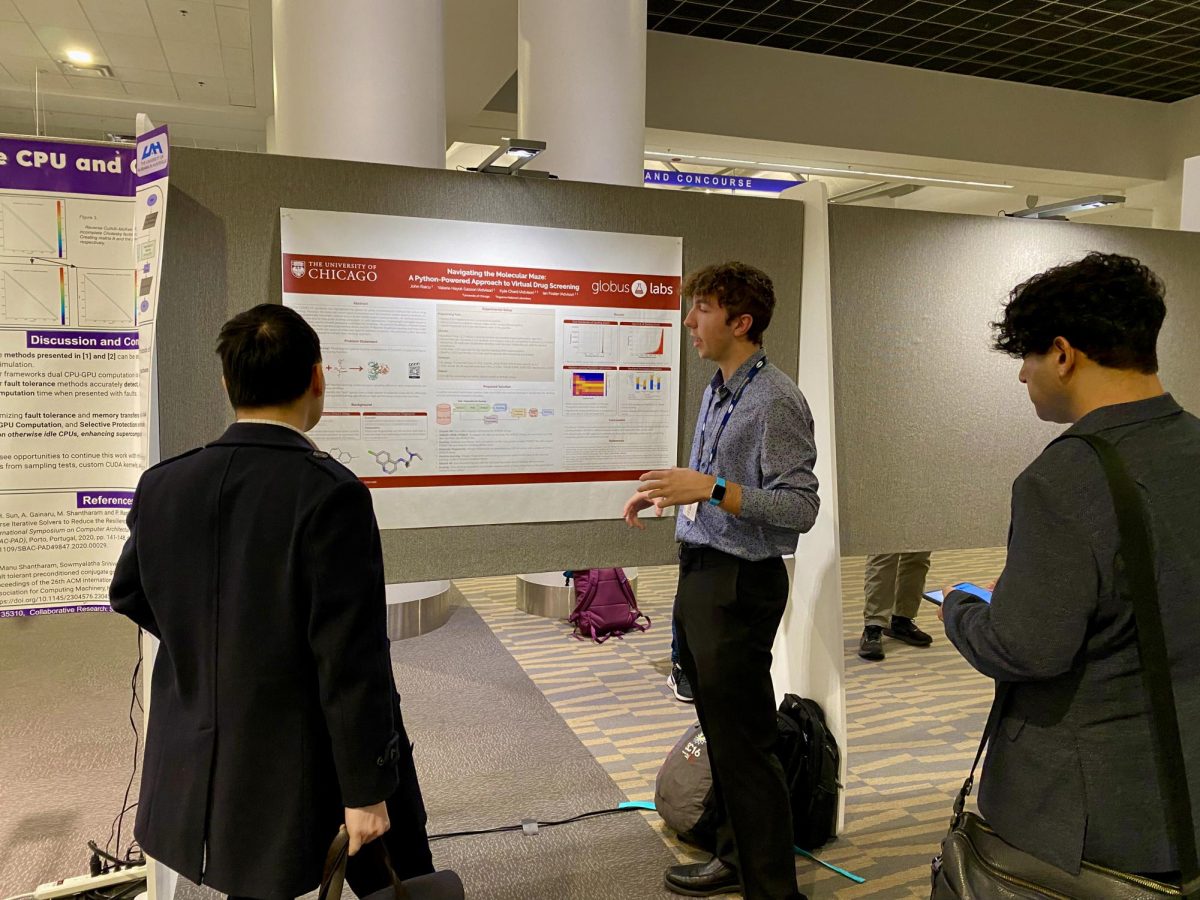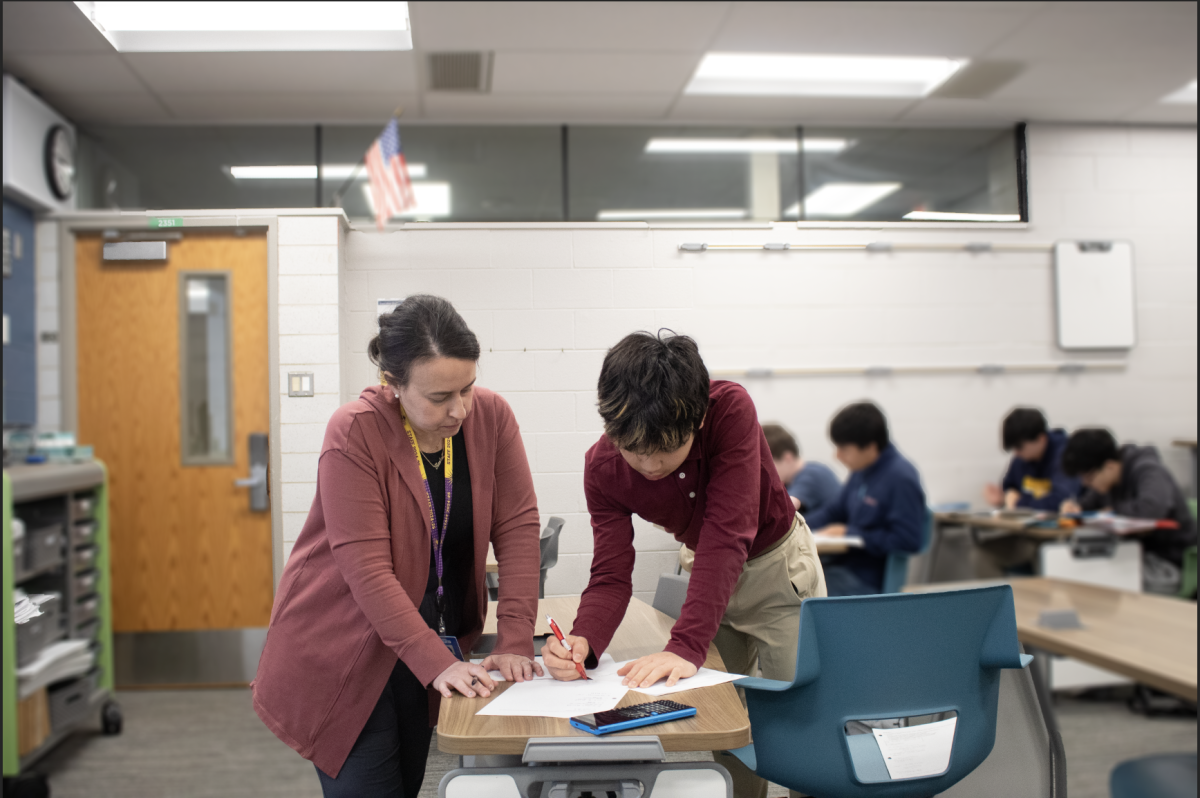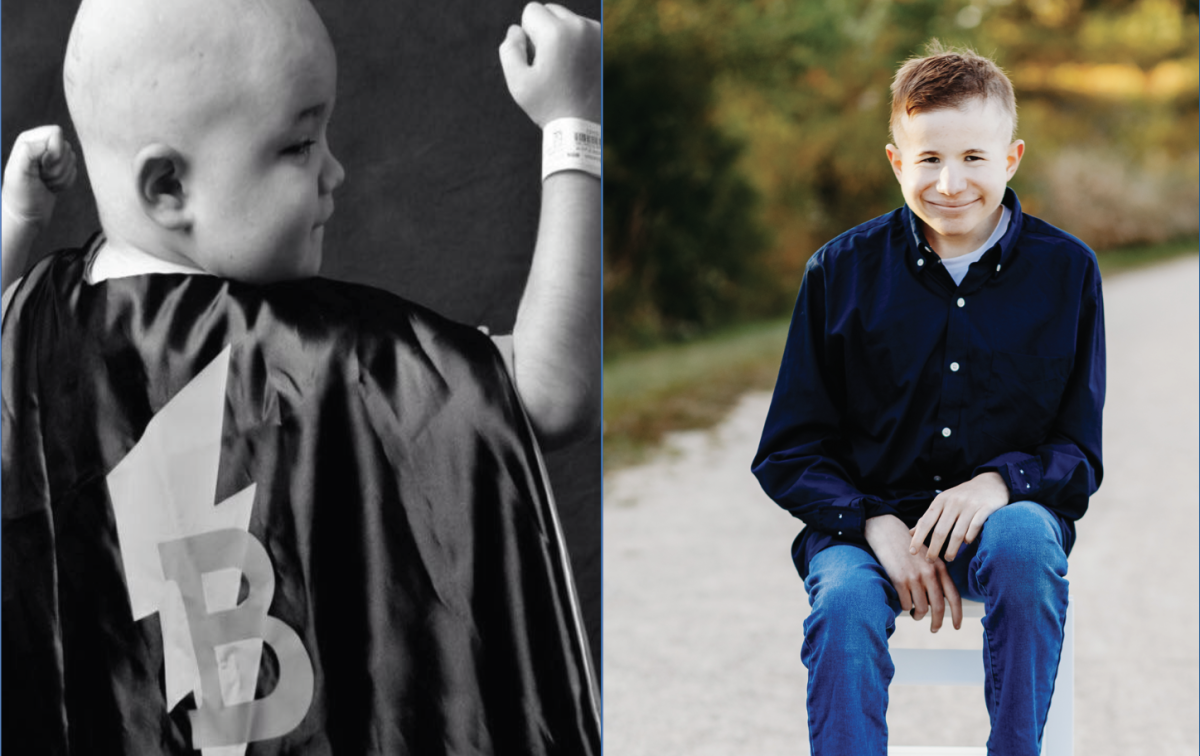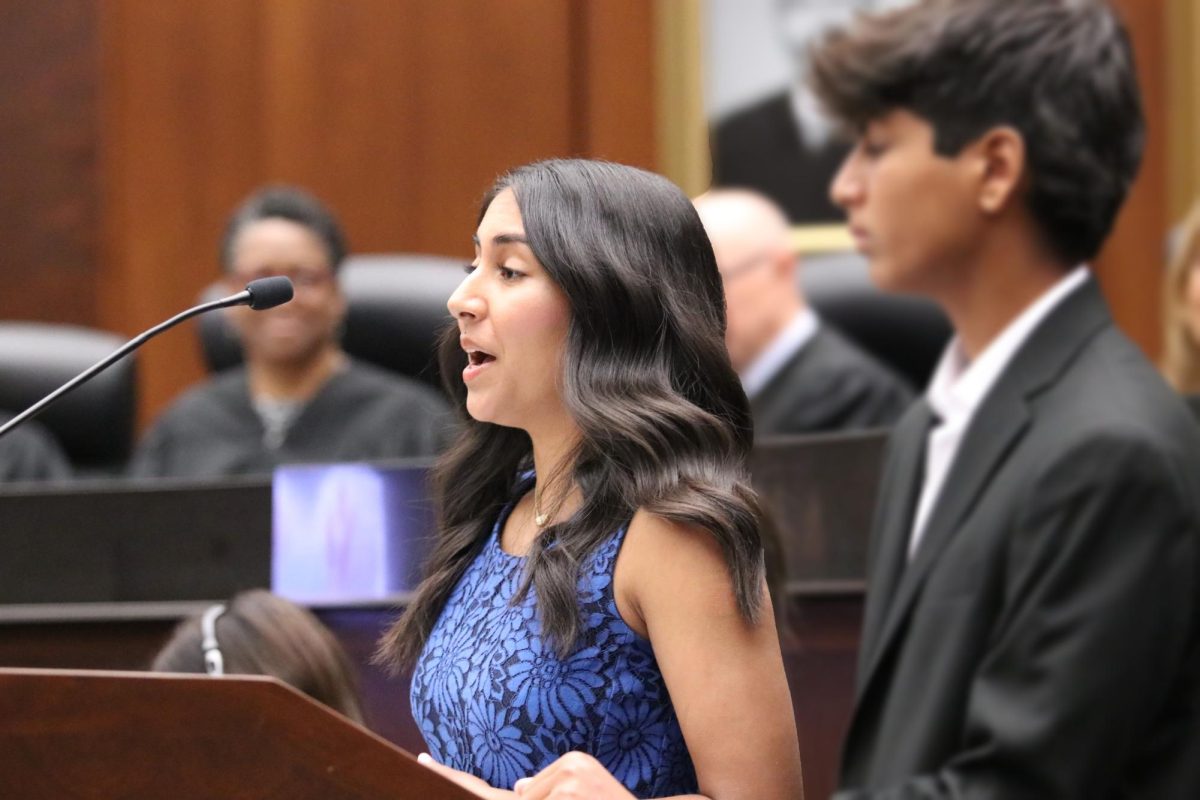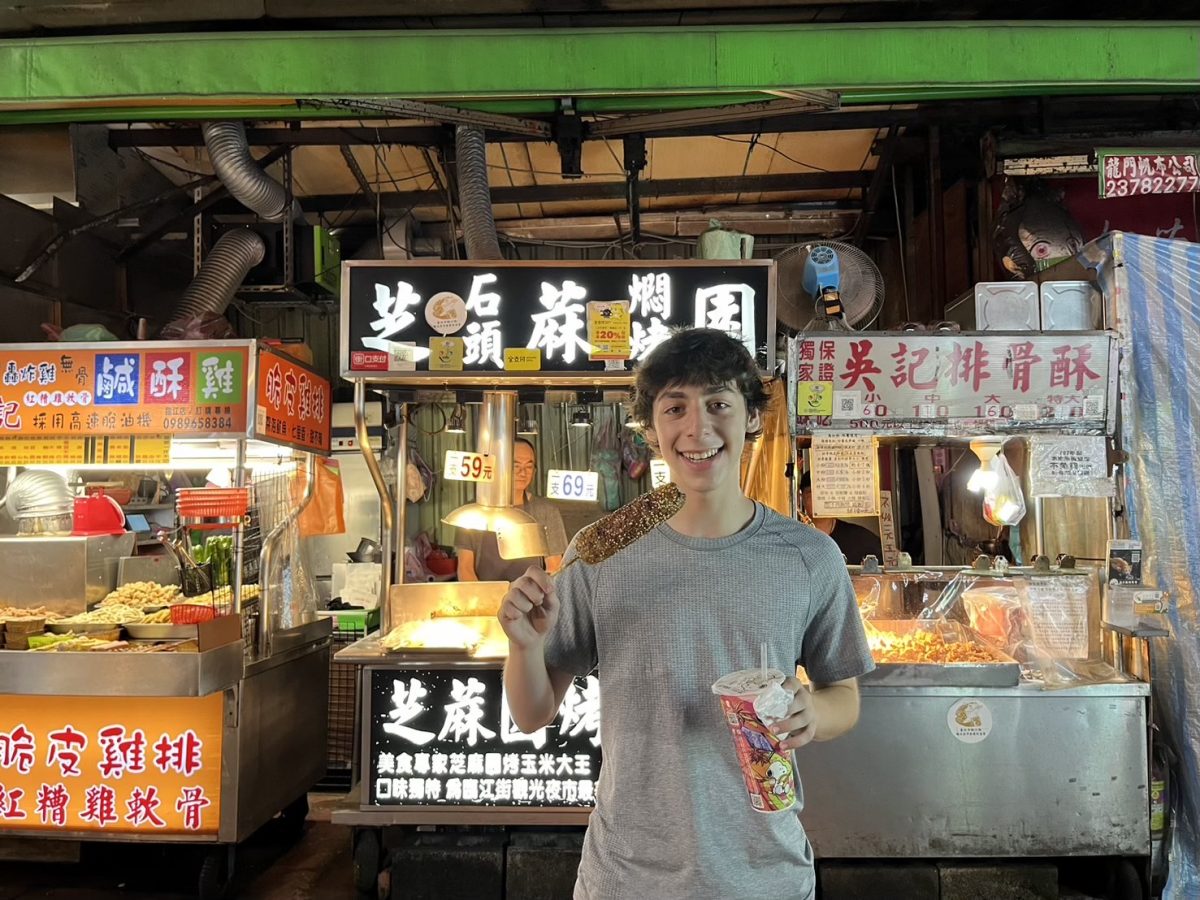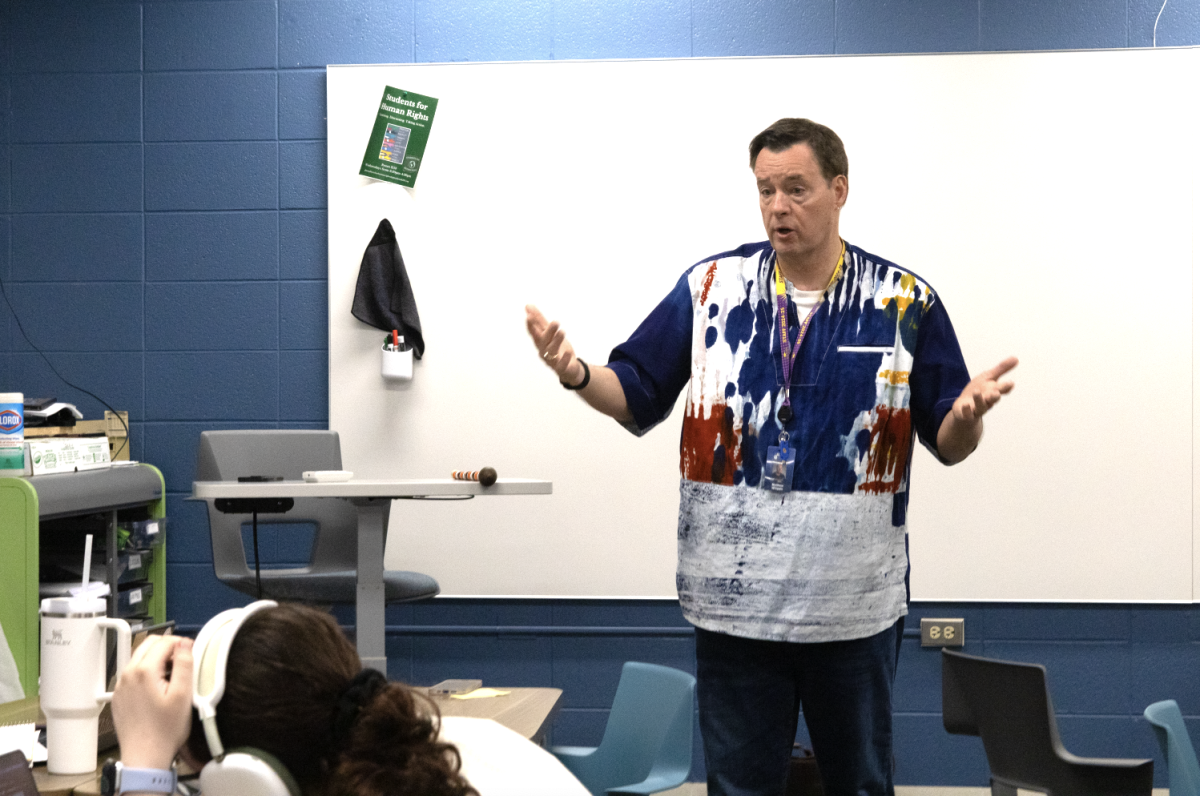As the Super Computing (SC ‘23) conference buzzed with anticipation, senior Johnny Raicu stepped on stage, radiating a contagious energy of excitement. The room fell silent, all eyes fixated on Raicu, the only high school student competing against a room full of undergrads, ready to share his research that would soon transform all those present. As Raicu began his presentation, each word bore the weight of countless hours spent immersing himself in research, persistent pursuits of knowledge, and never-ending determination.
Raicu placed second in SC ‘23 in Denver, Colorado on Nov. 15 for his research on accelerating virtual drug screening. Raicu’s childhood dream of becoming a doctor sparked his interest in pursuing research. This compelled him to apply for an internship at the University of Chicago (UChicago) and was assigned a project about protein docking this summer. Protein docking is a method of virtual drug screening, used to predict the structure of when two or more proteins interact, Raicu explained. This research project took eight hours per day and five days per week for 10 weeks, he added.
“I was interested in doing research at the intersection of medicine and computer science,” Raicu said. “I hope to contribute to the field of medicine with solutions to previously attempted problems using engineering and computer science,” Raicu said.
The first several weeks of Raicu’s project, which began in June, were spent researching the subject, growing more adept in coding, taking additional courses, and acquiring new talents, Raicu stated.
“For me to understand [my professor’s] ideas and implement them, I needed to build up my skill set and bring it up to par with other undergrads and PhDs and his research group,” Raicu said.
The research took an innovative approach to the computational screening of small molecules, Kyle Chard, Research Associate Professor at UChicago said. Raicu’s approach used high-performance computers to run multiple protein docking simulations concurrently. Raicu also incorporated a machine learning model to predict docking scores and guide the selection of molecules for simulation, Chard said.
Raicu and his colleagues worked for several more weeks to complete a poster and final report, which they submitted to SC’23. After wrapping up his research, Raicu began his senior year. He was then requested to deliver a second lecture at ParslFest, a national conference of researchers and professors who use the program he worked on, Raicu explained. Later in November, Raicu traveled to Denver, where he was accepted into SC ‘23 and presented his poster.
“They selected the top five finalists from the whole competition, and I got selected, fortunately,” Raicu said. “[I gave] a presentation on [my] research with judges [present]. It was more selective; they could ask questions, and after, they awarded me second place, which was very exciting.”
Chard served as a mentor for Raicu and his team over the summer, he explained. They often discussed the project, challenges, and strategies to ensure the proper resources and support needed, and Chard was overjoyed at Raicu’s success at SC ‘23.
“I was very impressed to learn of [Raicu’s] acceptance into SC ‘23,” Chard said. “I was even more thrilled that he was awarded second place. This [was] a remarkable achievement as he was competing against a group of the best undergraduate students around the country. [His] award recognizes not only the quality of his research but also the quality of his poster and oral presentations at the conference.”
Raicu spent many challenging days working on his project, at times even having to back up and try again, which was frustrating, he said.
“I don’t remember a single easy day,” Raicu said. “Every week seemed tougher than the last. But the hardest aspect was being able to take a step back and see where [we were] in the whole process. [It was] pretty hard to accept that you’re not going to know if you’re right or wrong [at] the moment and try out multiple outcomes and see where that leads you.”
Raicu’s research has reduced the time it takes for the process of virtual drug screening, simultaneously making it more efficient, he said.
“Before [my research], a personal computer couldn’t handle [protein docking,” Raicu said. “[It] would just freeze up and choke. [Others] would need to use government lab supercomputers and not everybody has access to those. with this improvement, not only have we accelerated [virtual drug screening], but now scientists can use it on their personal computers.”
Raicu’s experience strengthened his academic and personal experience, Chard said. It provided him with first-hand research experience and allowed him to grow technical skills while also learning about high-performance computing, protein docking, and machine learning for the first time. Additionally, it inspired him to seek further internship and research opportunities, Raicu added.
“[This experience has] motivated me to pursue future internships and do more research,” Raicu said. “If a [group] of scientists and researchers thought that my [work] was impactful, then I can continue to create more significant research.”



